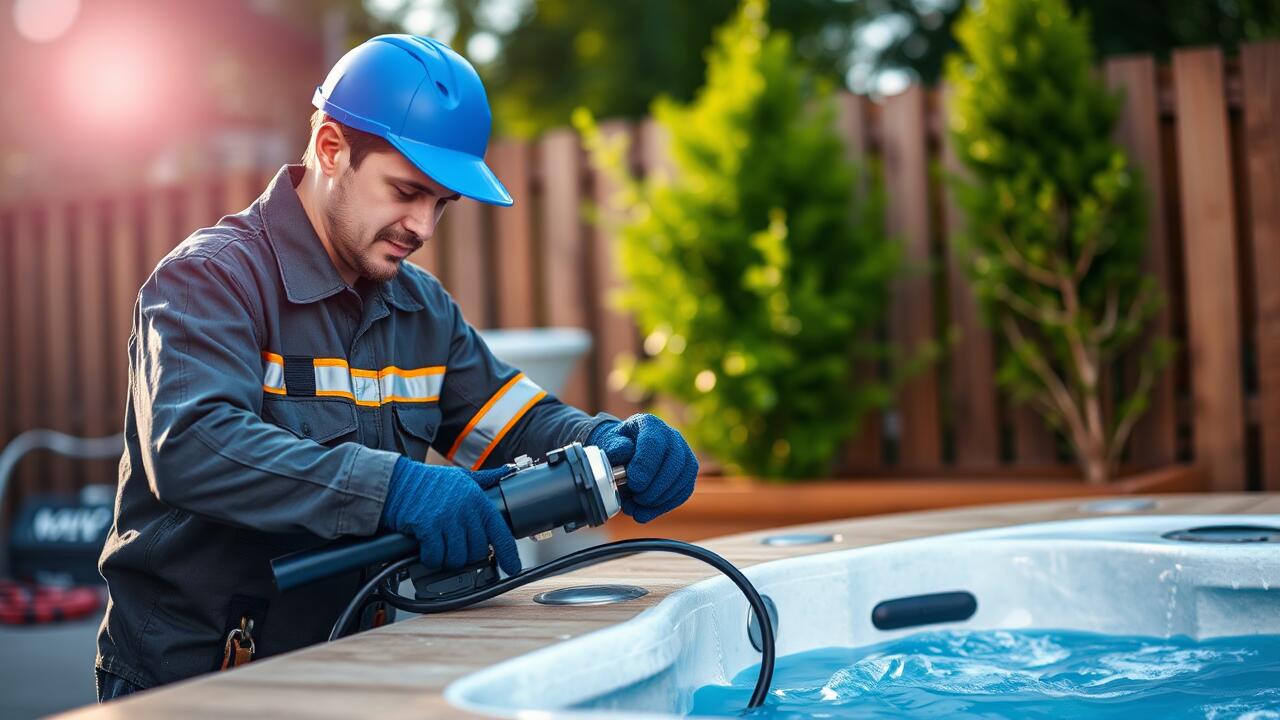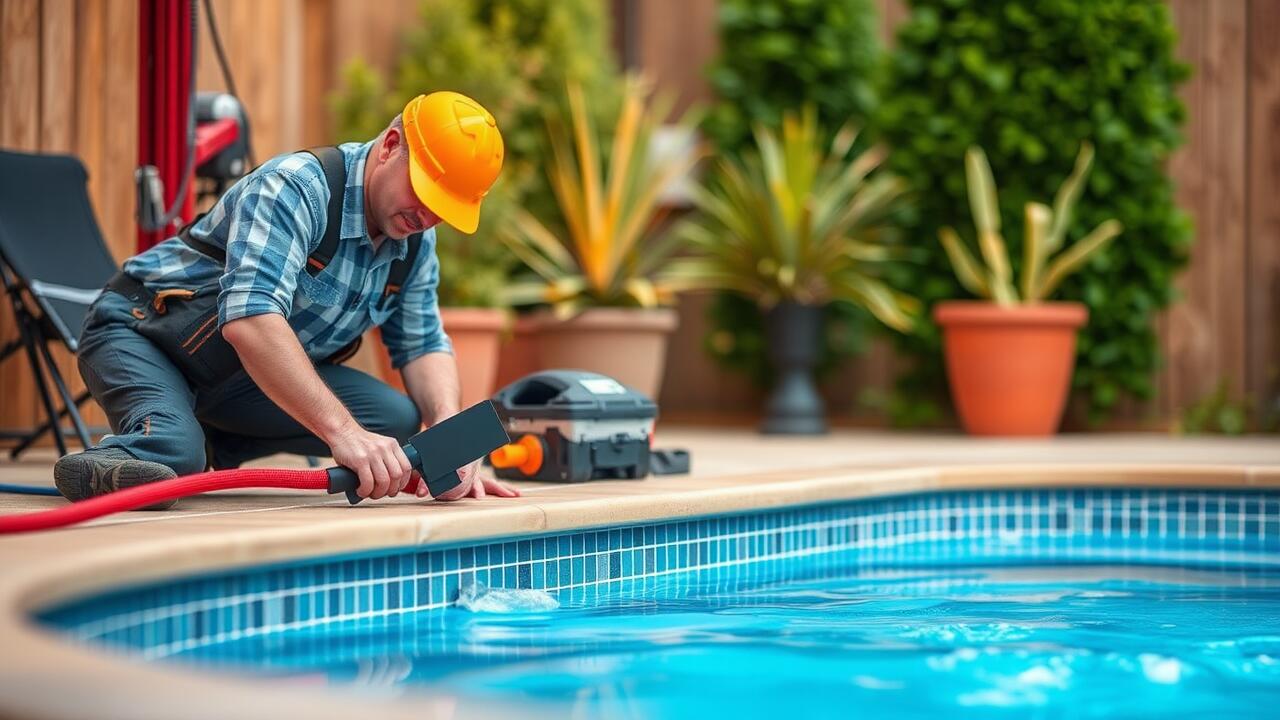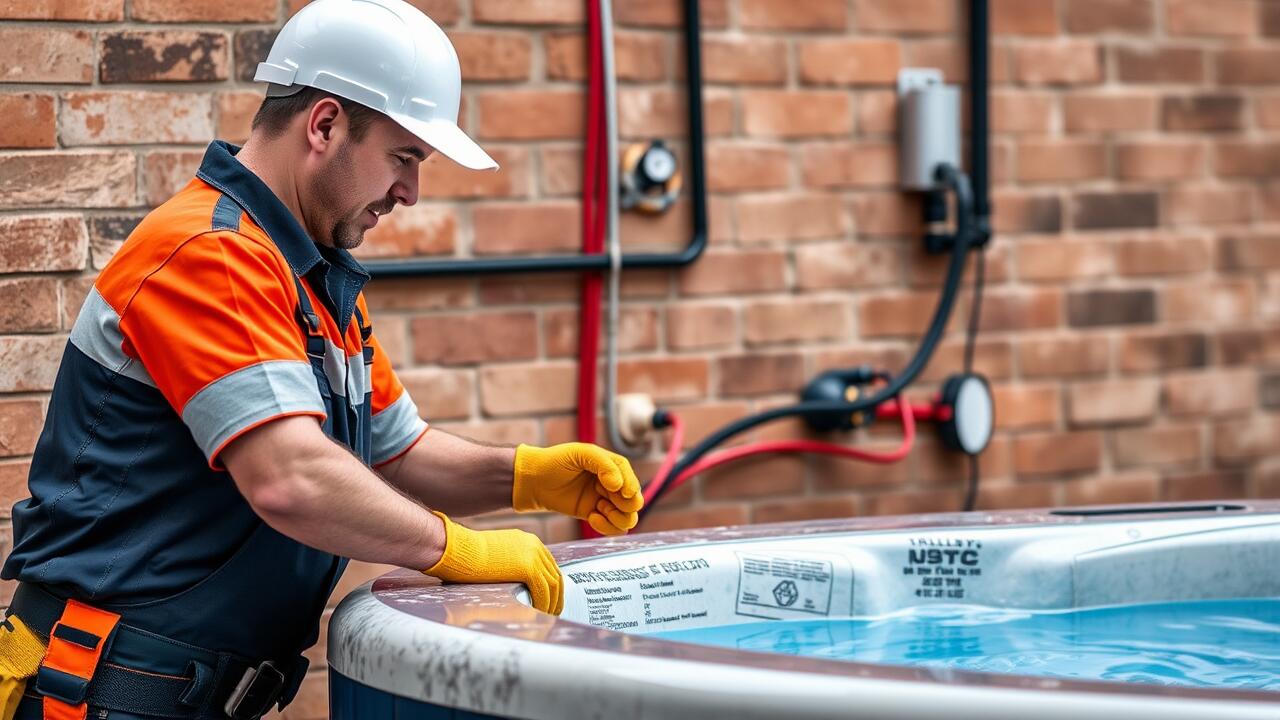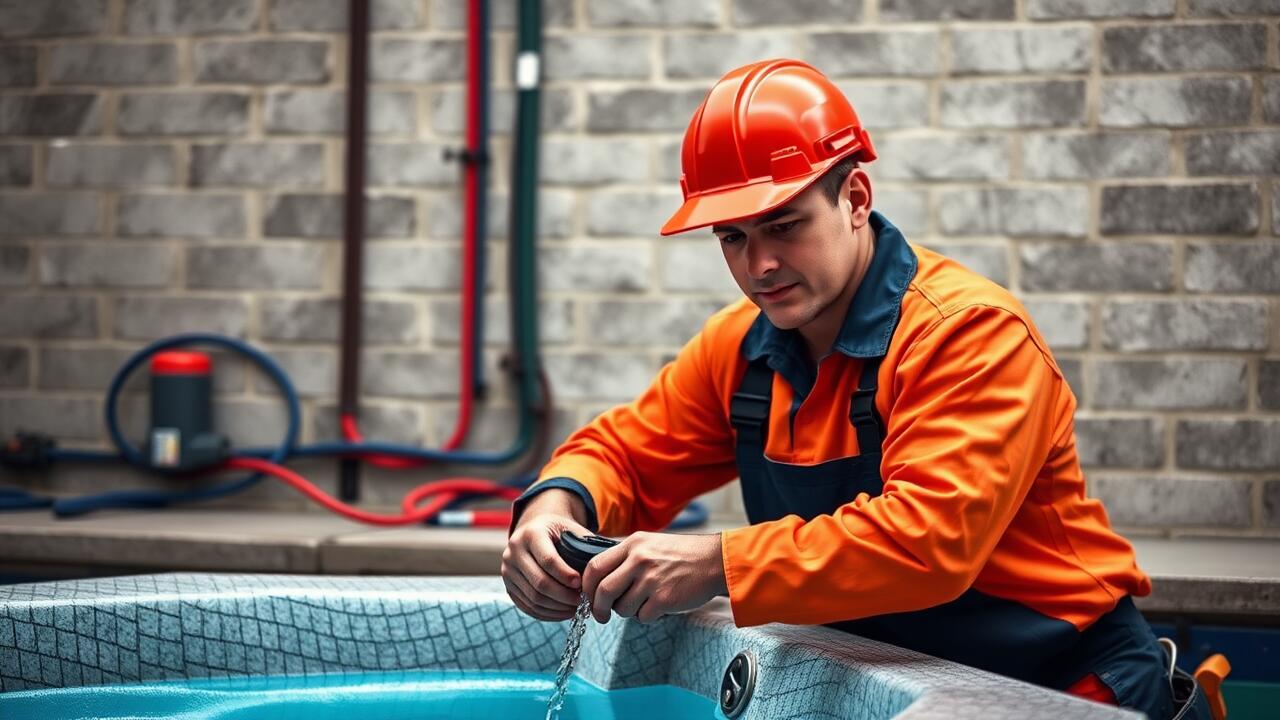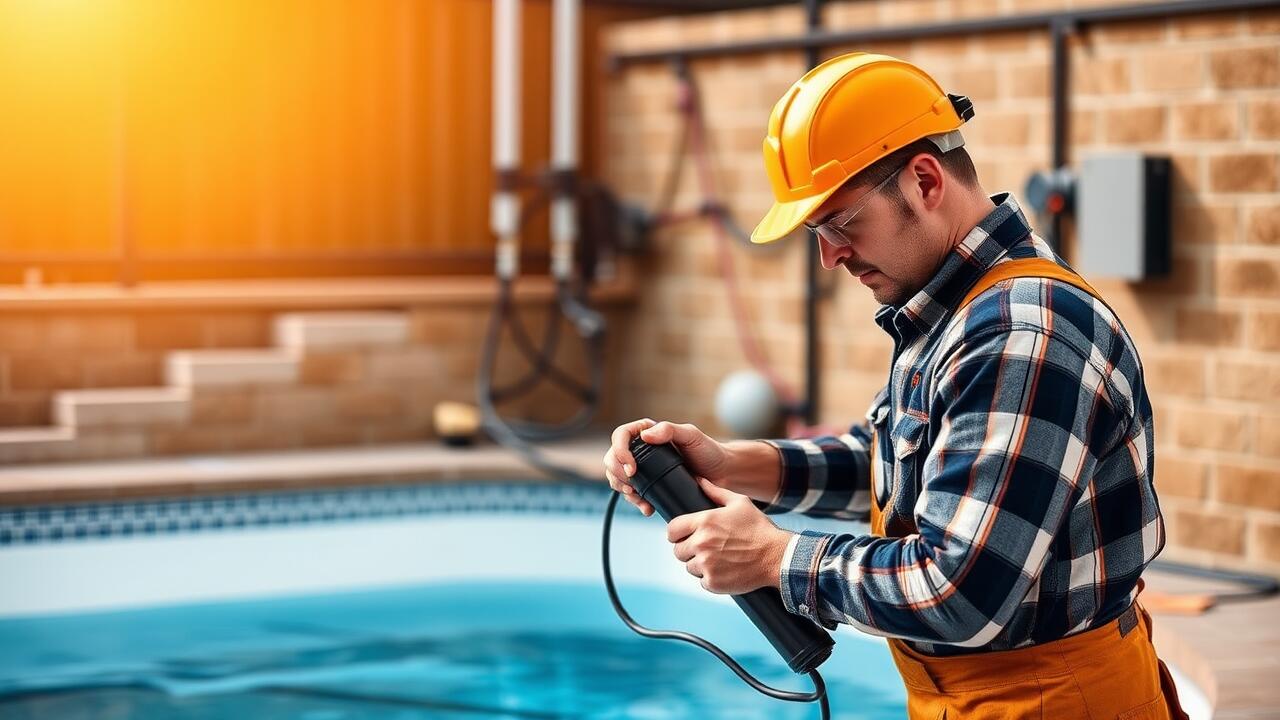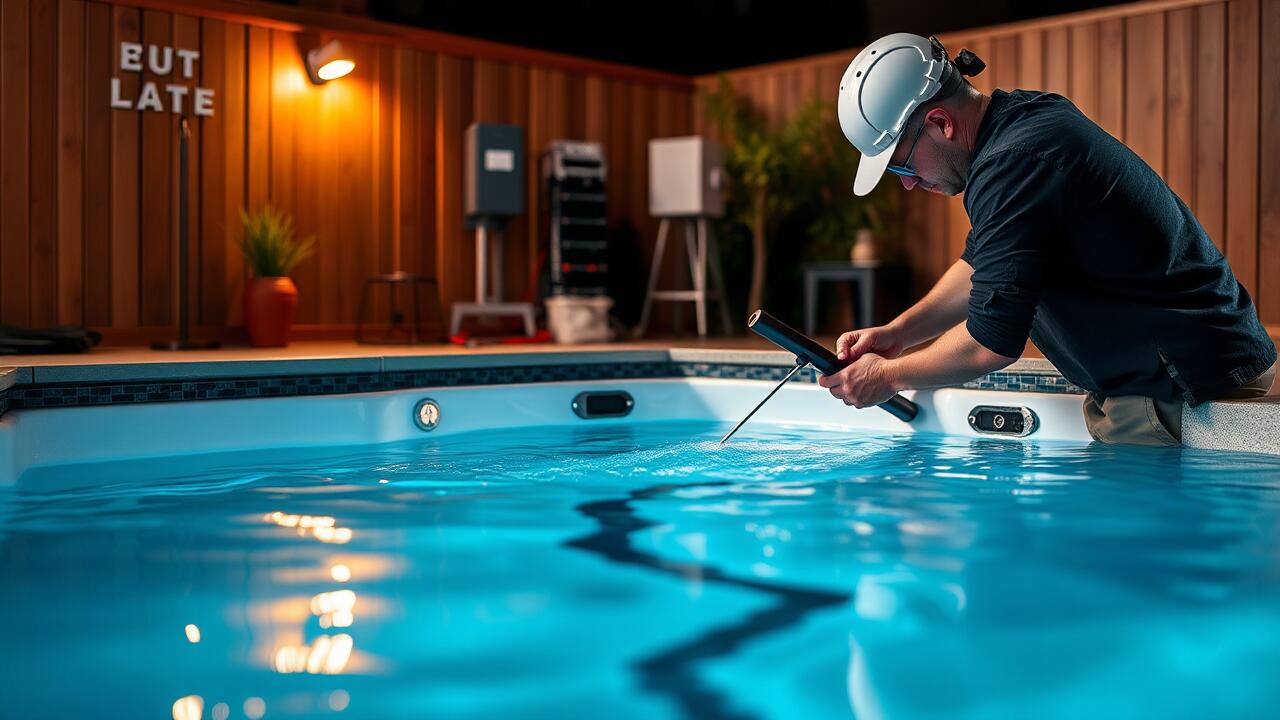
GFCI Protection in Pool Areas
GFCI protection is essential in pool areas to prevent electric shocks and ensure safety. Ground Fault Circuit Interrupters detect imbalances in electrical current and shut off power instantly, significantly reducing the risk of injury. Outdoor pools and hot tubs are particularly vulnerable to such hazards, making GFCI installation a critical requirement. Compliance with local electrical codes enhances safety for users and minimizes liability for property owners.
For homeowners engaging in Pool and Hot Tub Wiring in Gulfton, Houston, understanding GFCI regulations is vital. Local regulations dictate the placement and specifications of GFCI devices to ensure they are accessible and functional. Regular testing of GFCIs is also crucial, as these devices can wear out over time. A properly installed and maintained GFCI provides peace of mind for those enjoying leisure time in and around water.
Role of Ground Fault Circuit Interrupters
Ground Fault Circuit Interrupters (GFCIs) play a vital role in safeguarding individuals from electrical shocks in wet environments. These devices continuously monitor the electrical current flowing through a circuit. If they detect an imbalance, which indicates that electricity may be escaping to the ground, they swiftly shut off the power to prevent potential harm.
In areas such as Pool and Hot Tub Wiring in Kingwood, Houston, the installation of GFCIs is not just recommended but often legally mandated. The presence of water significantly increases the risk of electrical hazards, making these protective devices essential. Homeowners must ensure that all circuits associated with pools and hot tubs are equipped with GFCIs, promoting safety for everyone using these recreational amenities.
Choosing the Right Cable Types
When installing wiring for outdoor pools and hot tubs, selecting the right cable types is essential for ensuring safety and compliance with electrical codes. For locations exposed to moisture, such as around pools and hot tubs, only materials specifically rated for wet locations should be used. These cables are constructed to resist water damage and corrosion, which can significantly extend their lifespan and reliability.
In areas like River Oaks, Houston, where high humidity and seasonal rain can impact electrical systems, using cables such as UF (Underground Feeder) or USE (Underground Service Entrance) is advisable. These cables have the necessary insulation and protection against environmental factors. Engaging a licensed electrician familiar with local regulations can further ensure that the chosen cable types meet safety standards while functioning effectively for pool and hot tub wiring in River Oaks, Houston.
Materials Suitable for Wet Locations
When selecting materials for wiring around outdoor pools and hot tubs, it's crucial to use products specifically designed for wet locations. Non-metallic sheathed cable, commonly referred to as NM cable, is unsuitable for these environments due to its vulnerability to moisture. Instead, options such as UF (underground feeder) cable, which has a moisture-resistant coating, provide better protection against water exposure. Additionally, utilizing conduits made of PVC or rigid metal can offer further safeguarding against environmental elements, contributing to the longevity and safety of installations.
For those engaged in Pool and Hot Tub Wiring in Bellaire West, Houston, understanding local codes and standards is essential. The National Electrical Code (NEC) sets specific guidelines for the types of materials acceptable for outdoor use. Opting for materials that meet these standards can prevent hazards and ensure compliance. By choosing appropriate wiring methods and materials, homeowners can better protect both their families and investments in outdoor recreational spaces.
Installing Outdoor GFCI Breakers
When installing outdoor GFCI breakers, it’s essential to start by choosing a suitable location for the breaker box. Select an area that is easily accessible and protected from direct exposure to water. Ensure that the box is mounted at least 5 feet away from the pool edge or hot tub to minimize the risk of water splashes. Grounding is crucial, so ensure all connections are secure. A proper installation will enhance safety for users around swimming areas, which is especially important in regions like Midtown, Houston where humidity can impact electrical systems.
Next, follow a systematic installation procedure to ensure compliance with local codes. Begin by turning off the power at the main circuit breaker. Purchase GFCI breakers that are rated for outdoor use and compatible with your electrical panel. Install the breaker according to the manufacturer's guidelines, connecting the incoming wires to the appropriate terminals. Finally, once everything is secure, turn the power back on and test the GFCI to confirm it trips correctly. This installation process is vital in maintaining safety for both pools and hot tubs in residential areas.
Step-by-Step Installation Guide
Installing outdoor GFCI breakers requires careful planning and precision to ensure safety and compliance with electrical codes. Begin by turning off the power at the main circuit breaker to prevent any accidental shocks. Remove the existing outlet cover if applicable and carefully detach the outlet or breaker box from the wall. Always use a voltage tester to confirm that the power is indeed off before proceeding with further steps. Choose a suitable location for the GFCI breaker that fulfills local code requirements and is accessible for maintenance.
Next, connect the wires to the GFCI breaker according to the manufacturer's instructions. Typically, the line wires (incoming power) are attached to the proper terminals marked for that purpose, while the load wires (feeding other outlets) can be connected if necessary. Ensure that all connections are tight and secure. When everything is in place, reattach the cover and restore power at the main circuit breaker. Testing the GFCI reset button before using the pool and hot tub equipment is important for the safety of all users. For those involved in pool and hot tub wiring in Kingwood, Houston, adhering to these steps will help maintain a safe outdoor environment.
FAQS
Why is GFCI protection necessary in pool areas?
GFCI protection is crucial in pool areas because it helps prevent electrical shocks by quickly shutting off power if it detects a ground fault, ensuring safety for individuals using the pool or hot tub.
What types of cable materials are suitable for outdoor pools and hot tubs?
Suitable cable materials for outdoor pools and hot tubs include those rated for wet locations, such as UF (Underground Feeder) cable or THWN (Thermoplastic Heat and Water-Resistant Nylon) insulated wire, which can withstand moisture and various weather conditions.
How do I install an outdoor GFCI breaker?
To install an outdoor GFCI breaker, first, ensure the power is off at the main circuit panel. Next, connect the GFCI breaker to the appropriate circuit, following the manufacturer's instructions for wiring. Finally, secure the breaker in the panel and turn the power back on to test functionality.
What should I consider when choosing cable types for my outdoor pool or hot tub?
When choosing cable types for outdoor pools or hot tubs, consider the cable's insulation type, its rating for wet locations, the voltage requirements of your equipment, and the local electrical code regulations.
Can I use standard indoor wiring for my outdoor pool or hot tub installations?
No, standard indoor wiring should not be used for outdoor pool or hot tub installations. Outdoor wiring must be specifically rated for wet locations to ensure safety and compliance with electrical codes.
